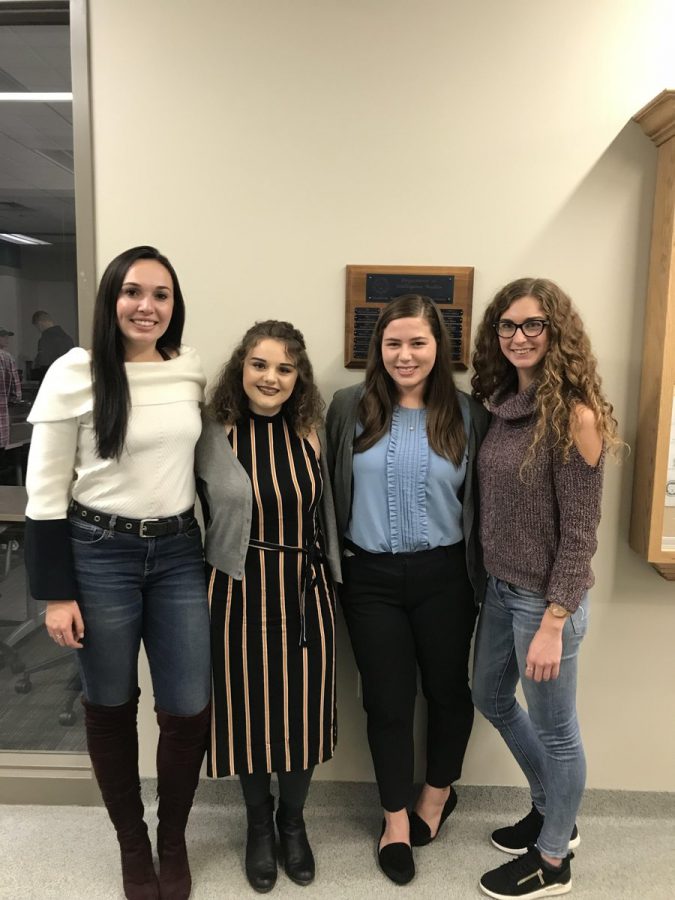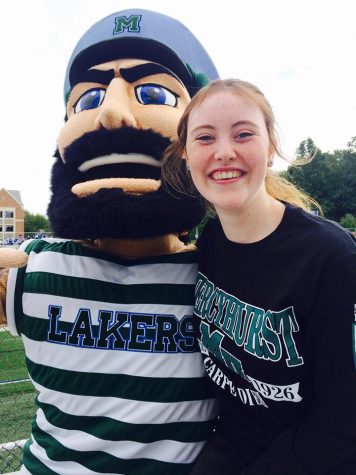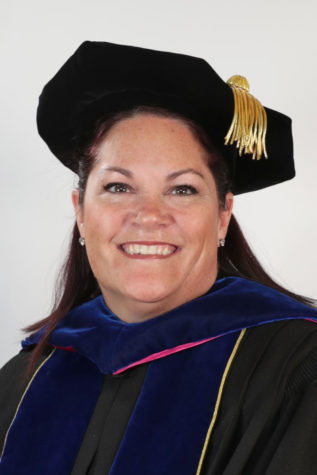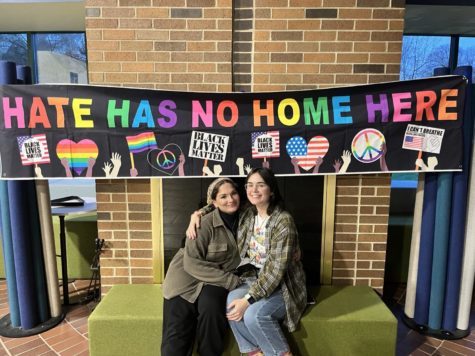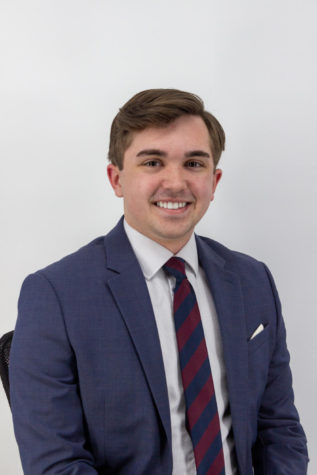Lakers combat money laundering
October 30, 2018
A group of Mercyhurst Intelligence Studies students has recently launched the Anti-Money Laundering Club (AMLC) as a new RSCO for Mercyhurst students this year.
The club is overseen by Musa Tuzuner, assistant professor of Intelligence Studies, and is led by students Isabella Fragnoli, Rebekah Prather, Ella DiPietro, Emma Rastatter and Julia Wrest.
The club has been set up with the intention of creating a higher profile for the study of money laundering as part of the Intelligence program, as well as the formation of a new platform for networking and collaborative project work. Fragnoli, sophomore Intelligence Studies major and AMLC president, is excited to take on a new leadership role that she feels can impact her peers.
“Anti-Money Laundering Club aims to offer opportunities for networking and learning more about the world of combating money laundering through research and education. AMLC will provide resources to assist in finding internships and jobs and will hopefully be truly helpful to Lakers as they enter the employment market and encounter illicit trade,” Fragnoli said. “I am excited to see what this club can bring to our campus this year.”
As part of their curriculum, Mercyhurst Intelligence Studies majors learn about terrorism, drugs, arms smuggling and human trafficking, all of which are made possible partly by successful money laundering.
“Everything in the world requires money; illicit activities are no different,” said sophomore Prather, co-founder and vice president of AMLC.
The club plans to have meetings throughout the year and bring in guest speakers to educate members with regard to how money laundering can be monitored and prevented.
Most recently, the club was involved in bringing alumnus Ryan Turner to Mercyhurst to discuss his role at Goldman Sachs, where he works as a Financial Crimes Compliance Officer.
Rastatter, a sophomore Intelligence Studies major, is currently serving as club secretary. “I chose to get involved with the club because it gives students the unique chance to learn about the growing AML strategies as well as opportunities to network with professionals within this field,” Rastatter said. “This club will help give students a variety of skill sets to enter into another potential career path after graduation, specifically for those students interested in business and competitive intelligence. The Anti-Money Laundering Club is looking forward to hosting speakers from banks and other institutions who specialize in white-collar crime.”
As well as white-collar crime, the study of money laundering can be useful to anyone considering a career related to prevention of illicit drug manufacturing, people smuggling, corruption, fraud, extortion, kidnapping or theft.
Prather noted the need for individuals trained in anti-money laundering and the career opportunities with intelligence agencies or financial institutions in the area of compliance.
The Anti-Money Laundering Club’s significance in the Mercyhurst community comes from it’s aim to expose students to the importance and relevance of anti-money laundering and counter terrorism financing efforts in both the United States and around the globe,” Tuzuner said.
“This club also facilitates the development of an extensive network of connections with professionals and academics in this field, which could potentially yield students with internships and career opportunities. As an adviser for the club, I hope to share with the students my enthusiasm and expertise in financial intelligence. This club creates an environment where the natural distance between student and faculty due to authority is eradicated and we all work together for the common goals we set as equals.”
The club will meet Tuesday evenings, with their next meeting scheduled for Nov. 6 in the CAE. All interested students should contact Rastatter to become a member and be added to the email group.

